
Do teens’ religious beliefs and practices differ between genders?
Springtide’s recent research finds several small differences between young men and women, ages 18-25, when it comes to their religious affiliation, service attendance, and self-described religiousness. The same study finds even fewer gender differences for teens, ages 13-17. While small differences emerge in self-reported spirituality, there are no further differences in these teens’ religious beliefs or practices.
Teen religious affiliation & community by gender
There are no significant differences between genders when it comes to affiliation with a religious tradition or community. Nearly three quarters of male teens (73%) and female teens (74%) identify with a religious tradition. Among both genders, 41% of teens say they are currently part of an organized religious or spiritual community.
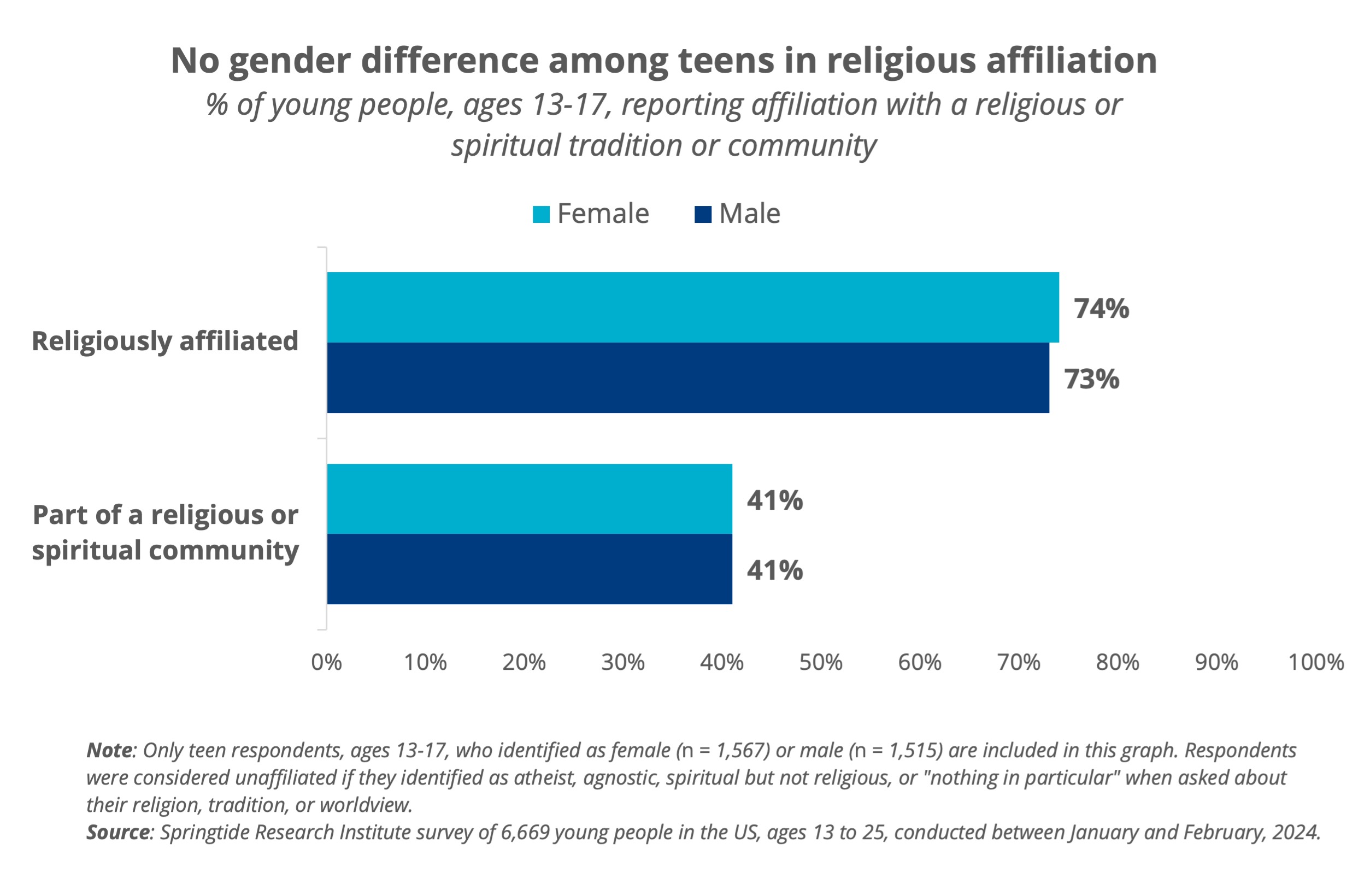
Teen religious service attendance by gender
Teens attend religious services at the same rates, regardless of gender. Nearly identical portions of male (28%) and female (27%) teens say they attend religious services at least once a week; likewise, 23% of male teens and 22% of female teens say they never attend these services.
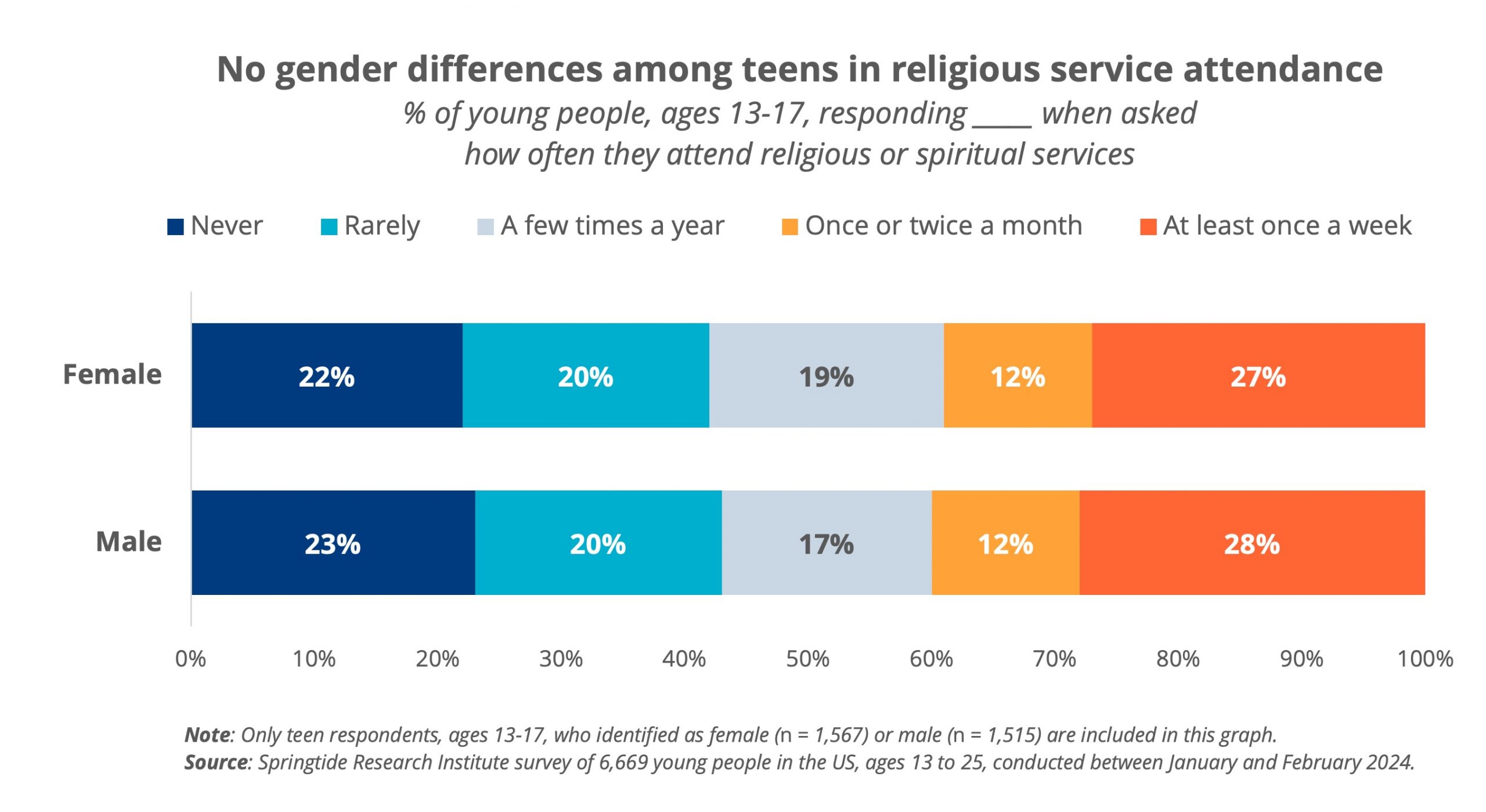
Teen religiousness and spirituality by gender
There are no significant gender differences in teens’ self-reported religiousness: 73% of female teens say that they are “slightly,” “moderately,” or “very” spiritual, and 75% of male teens say the same.
Meanwhile, a larger portion of female teens say that they are “slightly,” “moderately,” or “very” spiritual (83%), as compared to male teens (76%). However, the effect size is small, suggesting similar levels of spirituality across genders.
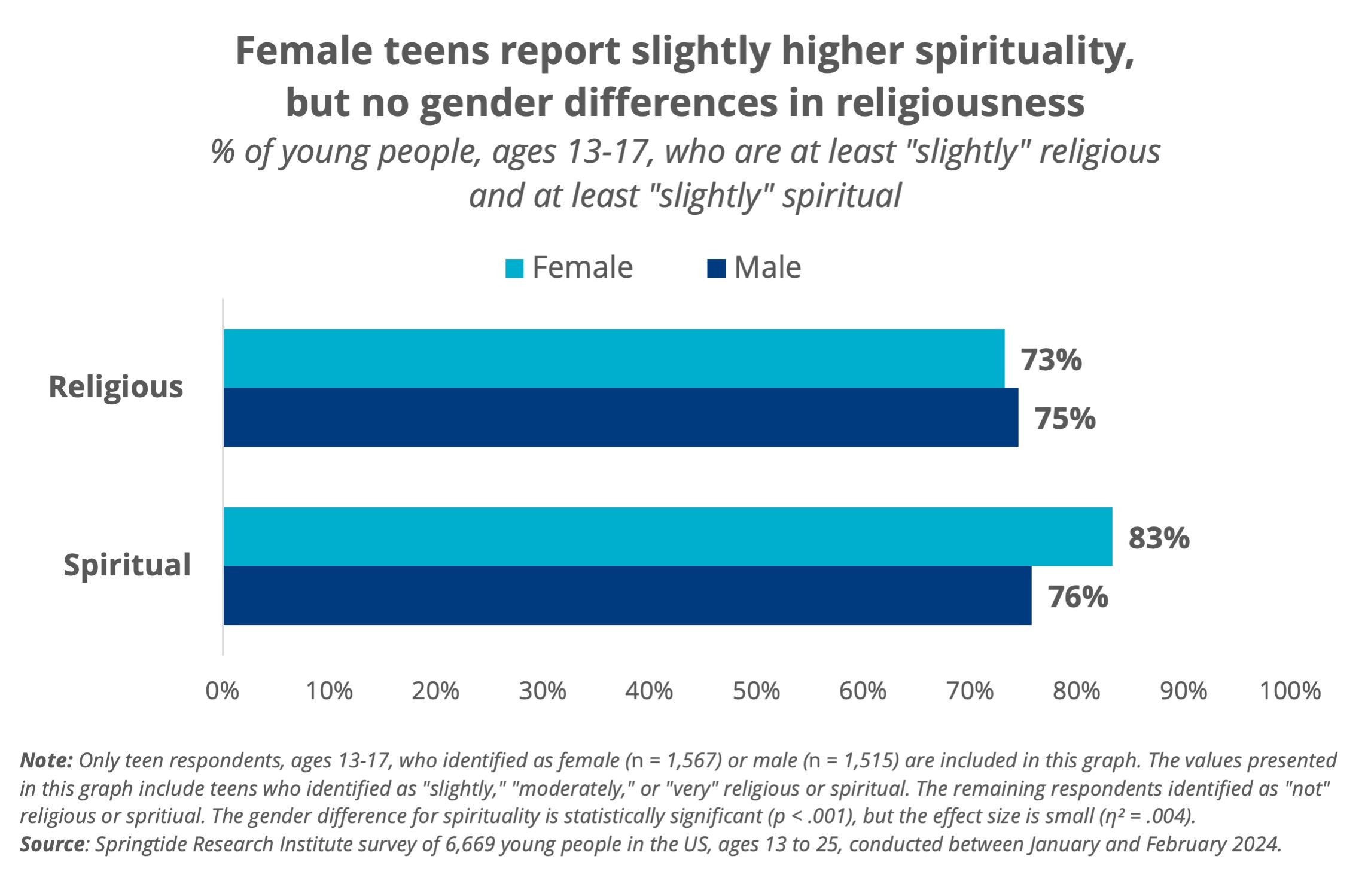
Teens’ beliefs in a higher power by gender
Among teens, there are no significant differences between genders when it comes to belief in a higher power—86% of female teens and 84% of male teens report some level of belief. Meanwhile, 8% of male teens and 6% of female teens say that they do not believe in a higher power. Eight percent of teens, regardless of gender, say that they don’t know what they believe about a higher power.
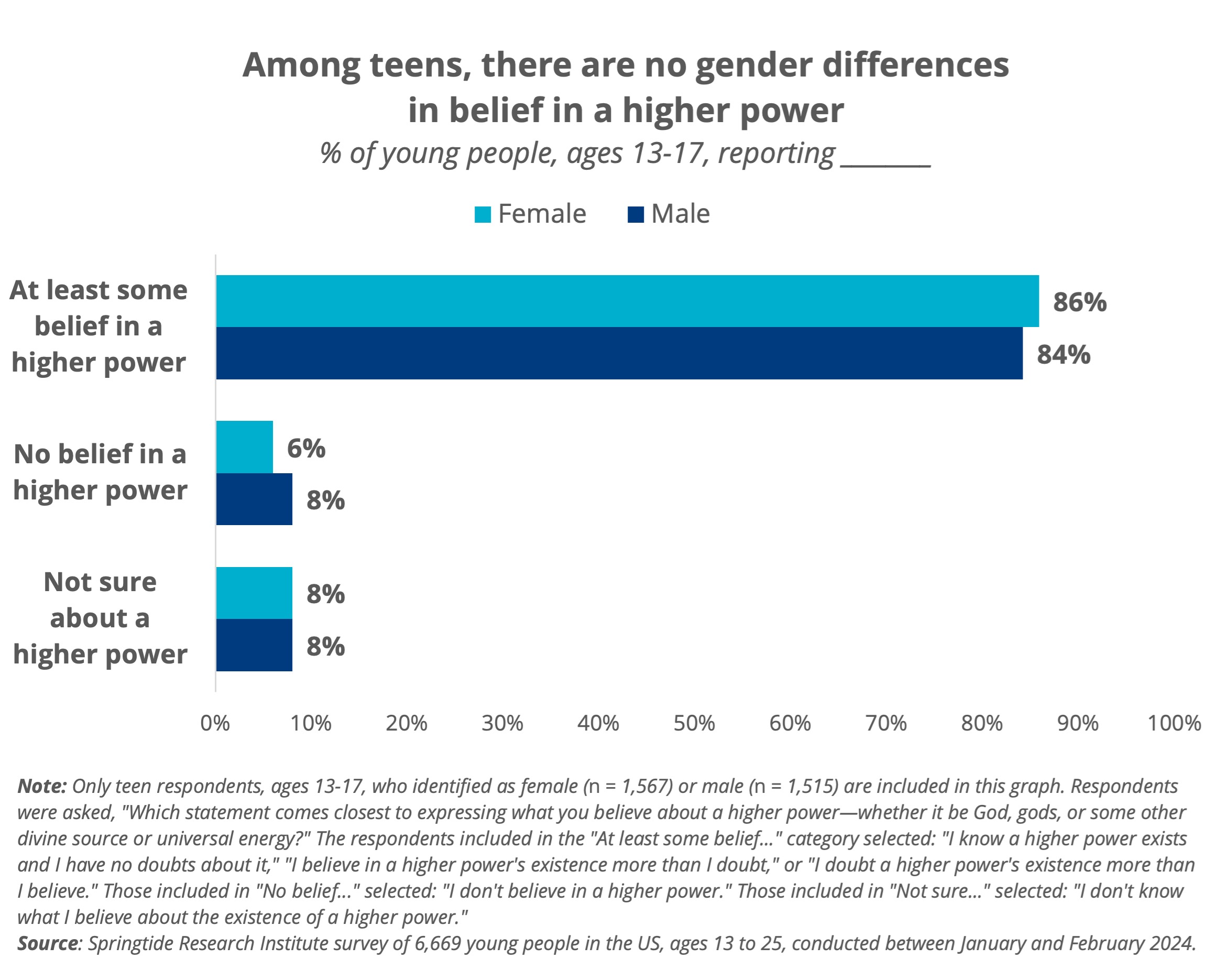
Very similar percentages of teens, regardless of gender, feel connected to a higher power. Of female teens, 84% report feeling “highly connected,” “moderately connected” or “slightly connected” to a higher power; 81% of male teens said the same.
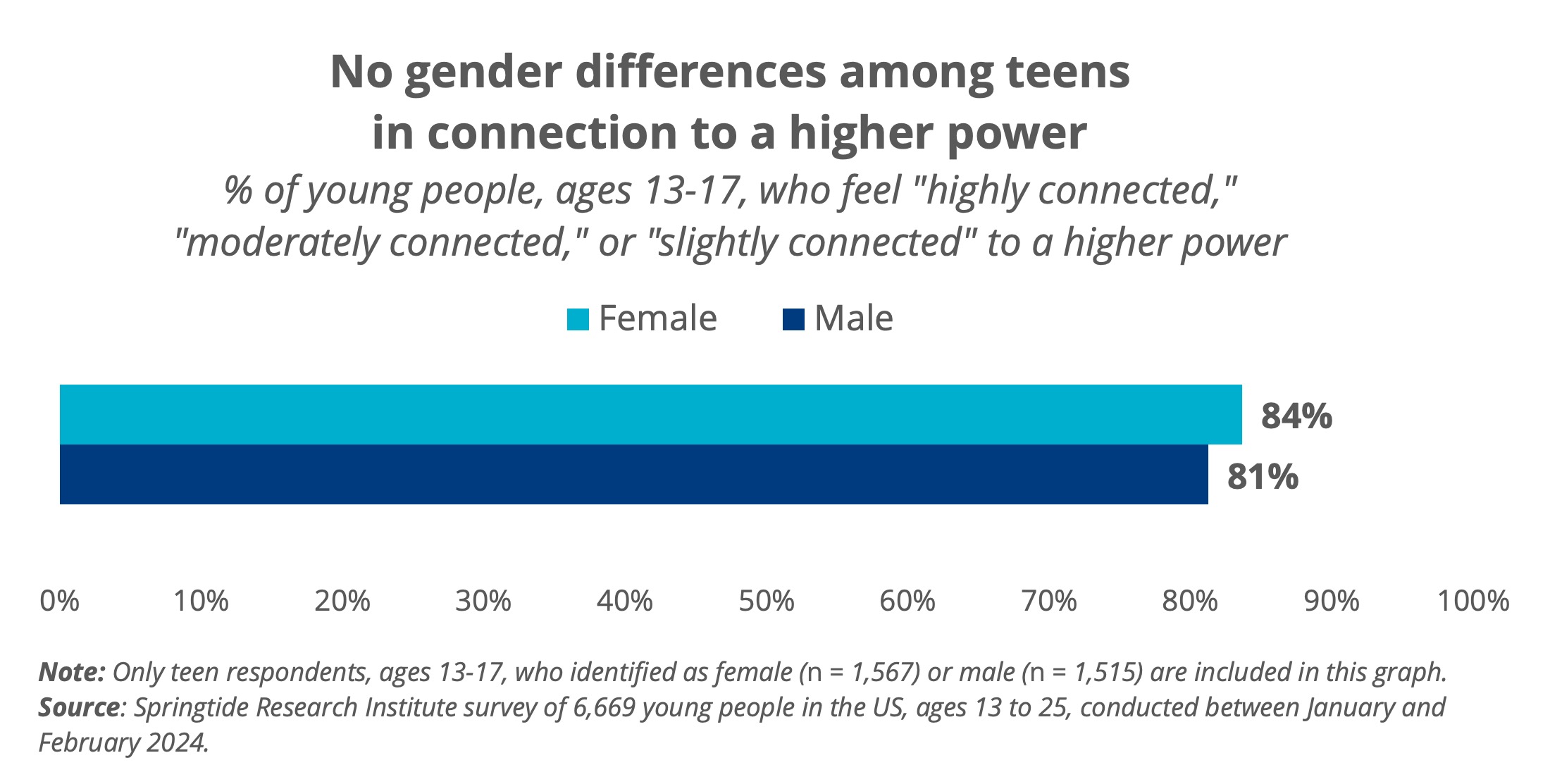
Note: The survey data featured in this Data Drop come from Springtide Research Institute’s 2024 Study of Young People and Civic Life. Springtide surveyed a sample of 6,669 young people in the US, ages 13–25. Young people ages 13-17 made up 48% of the survey sample (n=3,169). See survey responses in the topline survey results and review methodology here.



